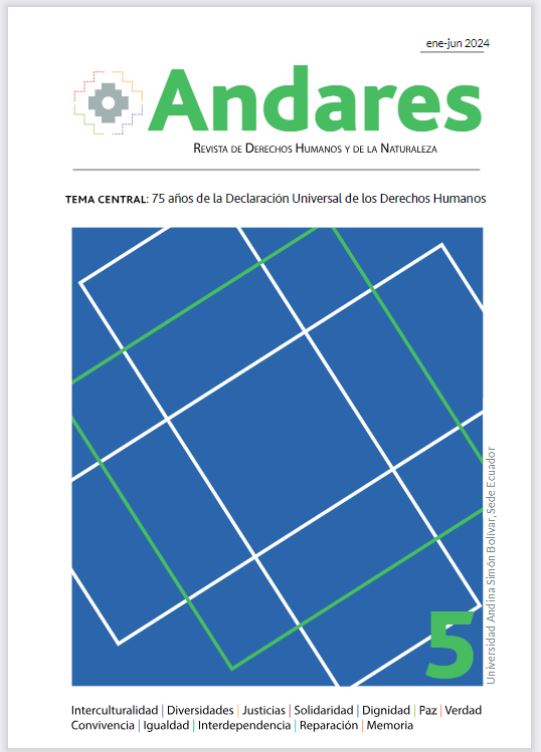Concentration Camp or Colonization?
Brief Reflections on Human Rights Today
DOI:
https://doi.org/10.32719/29536782.2024.1.1Keywords:
human rights, human rights violations, concentration camps, colonization, decolonization, democracy, contemporary society, political philosophyAbstract
This essay aims to present two important paradigms that inform part of the contemporary debate on human rights, namely, the concentration camp paradigm represented by thinkers such as Hannah Arendt, Giorgio Agamben, Judith Butler and, to a lesser extent, Michel Foucault, and the colonization paradigm represented by Aimé Césaire, Frantz Fanon, Walter Mignolo and Achille Mbembe. To achieve the objective, we will begin with a brief presentation of the hegemonic version of the human rights discourse with its main assumptions. The thought of the political scientist Norberto Bobbio is taken as an example of this predominant perspective. Despite the differences between the thinkers, we present some of the main ideas of the concentration camp paradigm and then confront them with the reflections made by thinkers who dared to consider colonization not as a “mere” historical event, but as a theoretical landmark, reorganizing the way we interpret the relationship between modernity and right. Finally, the need for an interepistemic dialogue between the two paradigms is suggested as a way to expand the grammars of human dignity in a world increasingly marked by the disrespect for human rights.
Downloads
References
Agamben, Giorgio. Estado de exceção. São Paulo: Boitempo, 2004.
—. Homo sacer: O poder soberano e a vida nua I. Belo Horizonte, BR: Universidad Federal de Minas Gerais, 2010.
—. Meios sem fim: Notas sobre a política. Belo Horizonte, BR: Autêntica, 2015.
Arendt, Hannah. As origens do totalitarismo. São Paulo: Companhia das Letras, 2000.
—. Da violencia. Río de Janeiro: Civilização Brasileira, 2009.
—. Eichmann em Jerusalém: Um relato sobre a banalidade do mal. São Paulo: Companhia das Letras, 2001.
Bobbio, Norberto. A era dos direitos. Río de Janeiro: Campus, 1992.
Butler, Judith. Caminhos divergentes: A judaicidade e crítica do sionismo. São Paulo: Boitempo, 2017.
—. Quadros de guerra: Quando uma vida é passível de luto? Río de Janeiro: Civilização Brasileira, 2015.
—. Vidas precárias: O poder do luto e da violencia. Belo Horizonte, BR: Autêntica, 2019.
Césaire, Aimé. Discurso sobre o colonialismo. Lisboa: Livraria Sá da Costa Editora, 1978.
Ciccariello-Maher, George. Decolonizing Dialectics. Durham, US: Duke University Press, 2017. DOI: https://doi.org/10.2307/j.ctv11smft7
Du Bois, W. E. B. As almas da gente negra. Río de Janeiro: Lacerda Editores, 1999.
Etkind, Alexander. Internal Colonization: Russia’s Imperial Experience. Londres: Polity Press, 2011.
Fanon, Frantz. Os condenados da terra. São Paulo: Civilização Brasileira, 1968.
—. Pele negra, máscaras brancas. Salvador, BR: Universidade Federal da Bahia, 2008.
Foucault, Michel. Dits et écrits II (1976-1988). París: Gallimard, 1994.
—. Em defesa da sociedade. São Paulo: Martins Fontes, 2002.
Grosfoguel, Ramón. Colonial Subjects: Puerto Ricans in a Global Perspective. Berkeley, US: University of California Press, 2003. DOI: https://doi.org/10.1525/9780520927544
Mbembe, Achille. “Necropolítica”. Arte & Ensaios 32 (2016): 122-51. http://tinyurl.com/ydm3be7b.
—. On the Postcolony. Berkeley, US: University of California Press, 2012.






